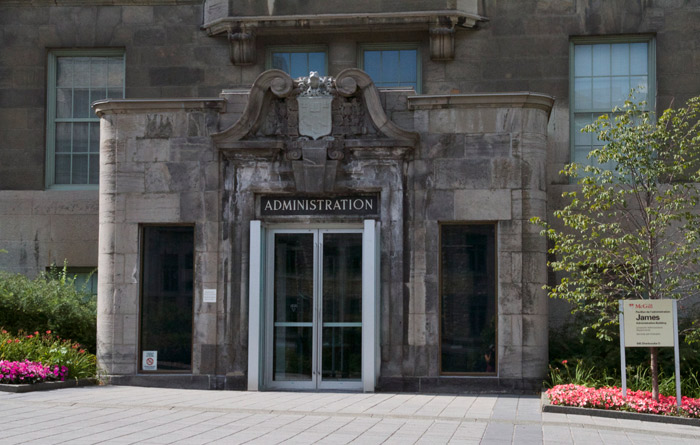Surplus for Fiscal Year
In his report to the Board of Governors, Vice Principal, Administration and Finance, Michael Di Grappa stated that McGill had an operating surplus of $15.7 million for the 2014 fiscal year, as opposed to the projected deficit of $10.4 million.
Di Grappa attributed this surplus to reduction in pension liabilities and a favourable market performance with regards to lowered costs of food sales and services. Additional revenue was received from the Quebec government after a recalculation of student enrolment for the past two years.
Di Grappa explained that the surplus had not been foreseen because the changes in pension liability and enrolment-based revenue McGill received from the Quebec government were calculated after the fiscal year.
Di Grappa also reminded the board that the surplus was only for last fiscal year. According to the McGill University budget book for 2014-2015, the target deficit for the 2015 fiscal year is $7 million.
He went on to explain that future cost increases were likely because of lowered government investment, the necessity of keeping a balanced budget, and uncertainty regarding pension costs and pay equity maintenance.
Provincial Budget Cuts
McGill will face an estimated $19 million in cuts after the provincial government announced in September that it had reduced its budget for the sector by about $172 million. According to Principal Suzanne Fortier, McGill had anticipated the budget cuts and had categorized $9 million in expenditures as contingent to receiving the initially expected amount in grants from the government. The board had also previously approved a $7 million deficit for the fiscal year. Consequently, McGill will have to account for a $13 million shortfall, which Provost Anthony Masi is working to reduce.
Fortier also spoke about the Quebec government’s push for universities to achieve a balanced budget by 2015, stating that McGill was in a better position to do so than other chartered universities because it had accepted the budget cuts of the previous provincial government up front, rather than on an incremental basis over several years.
Financial Flexibility
Fortier also stressed the importance of flexibility regarding funding from the provincial government in maintaining McGill’s place in university rankings such as the Times Higher Education (THE) World University Rankings. McGill placed 39th on the 2014-2015 THE rankings, a drop from it’s 35th position for the 2013-2014 year.
“Universities that have […] seen an influx of new investment or private universities that have more control of their destinies tend to do better on rankings.” Fortier said. “[We’re] promoting the need to have a bit more flexibility […] so that we can be in a position to take care of our own affairs, and not be sliding downwards because the government cannot help us with additional funding at this point.”
With regards to flexibility, Fortier discussed tuition for students with French citizenship, who are exempt from paying international student tuition and instead pay tuition at the provincial level. According to Fortier, McGill and other Quebec universities, such as Université de Montréal and Université Laval, had discussed a proposal that would potentially raise tuition for students with French citizenship to Canadian rates. In the proposal, which was presented to the Quebec government last Friday, each university would independently decide whether or not to raise tuition.










I don’t think raising the tuition for France citizens will actually raise that much money for McGill. In fact, by raising the tuition for France Citizens, McGill will lose existing students as well as future applicant. These students help the local economy and pay the inflated housing and dining expenses, plus spend money in Montreal. France policy will also most likely retaliate against Canadian students in France. In fact, is it even legal to change the treaty?